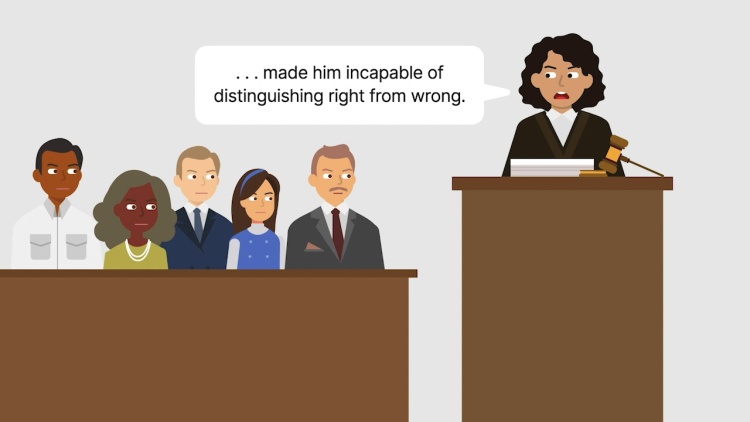People v. Serravo
Colorado Supreme Court
823 P.2d 128 (1992)
- Written by Lucy Elsbree, JD
Facts
At the time of this case, § 16-8-101, 8A of the Colorado Statutes defined a legally insane person as one who was “incapable of distinguishing between right and wrong.” Serravo (defendant) stabbed his wife while she was sleeping, wounding but not killing her. When she woke up, Serravo explained that she had been attacked by an intruder, and he repeated this explanation to the police. Several weeks later, however, his wife found letters written by Serravo admitting that he had stabbed her. When she confronted him, Serravo confirmed his guilt and stated that he had been told by God to end the marriage by killing her. Serravo was charged with attempted first degree murder, first degree assault, and the commission of a violent crime. After Serravo pled not guilty by reason of insanity, a trial was held on the issue of legal insanity. At the trial, Serravo offered expert testimony by four psychiatrists and a psychologist indicating that he was under the delusion that God was directly communicating with him and that he believed the stabbing was justified. The trial court refused a request by the People (plaintiff) to instruct the jury that Serravo was not insane if he knew that the stabbing was an unlawful act. Instead the court’s instruction stated that, even if he knew the stabbing was unlawful, Serravo was insane if he believed that it was morally right. The jury found that Serravo was legally insane, and the People appealed the court’s instruction to the court of appeals. The appellate court affirmed the judge’s instruction, holding that the word “wrong” in § 16-8-101 referred to moral rather than legal wrong, that as a general rule the morality of the defendant’s act must be judged by an objective rather than a subjective standard, but that a subjective standard is appropriate when the defendant believes he is acting under instructions from God. The Supreme Court of Colorado granted certiorari.
Rule of Law
Issue
Holding and Reasoning (Quinn, J.)
What to do next…
Here's why 907,000 law students have relied on our case briefs:
- Written by law professors and practitioners, not other law students. 47,100 briefs, keyed to 996 casebooks. Top-notch customer support.
- The right amount of information, includes the facts, issues, rule of law, holding and reasoning, and any concurrences and dissents.
- Access in your classes, works on your mobile and tablet. Massive library of related video lessons and high quality multiple-choice questions.
- Easy to use, uniform format for every case brief. Written in plain English, not in legalese. Our briefs summarize and simplify; they don’t just repeat the court’s language.





